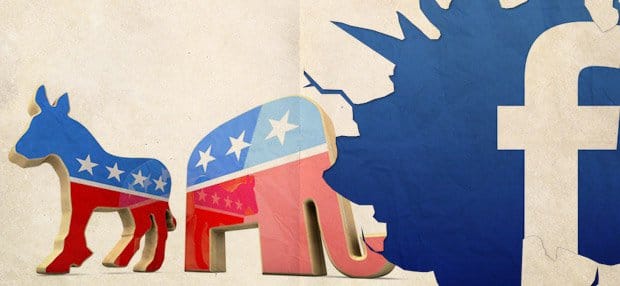US Rep. Says Social Media Is Killing Political Parties

"Just to make sure you know what you just said, you're a Republican advocating for the Republican Party to fall apart."
That's from the teaser intro to a half-hour interview by Reason Magazine's Matt Welch, of US Rep. Justin Amash (R-Mich.). Amash is a Republican congressman from Michigan with a very independent streak, a libertarian understanding of government, and a social media savvy approach to legislating and representing his voting constituents.
Amash's answer?
"Well, I think, over time, that's what has to happen. I think both parties, not just the Republican Party, I think the Democratic Party as well. I don't think that in the modern era that you need this sort of institutionalized party system to run for office." - US Rep. Justin Amash
To understand why it's so easy for Amash to see the crumbling of the two-party system in America -- something unfathomable to many -- as both a good thing and an inevitability, one need look no further than his age.
When he was first elected to Congress in 2010 at the age of 30, Amash was the second youngest member of Congress, and still one of the very few millennials who have cracked the U.S. Congress to date. His youth and savvy with social media were immediately evident after he took office.
As a state rep in the Michigan House of Representatives before going to Washington, Amash became well known online as the first legislator at any level of government in U.S. history to use a Facebook Page to post every vote he made, along with an explanation, and then take questions from constituents.

After getting elected to the US Congress, Amash made it a point to continue using social media to communicate with his constituents, posting every vote he made (including motions and amendments) to Facebook and explaining his reasoning behind it. Here's what Amash said that promoted Reason editor Matt Welch to ask that dramatic question that summed up the entire interview:
"I speak to young people all the time and try to encourage them not to be beholden to these two parties. They don't have to be Republican or Democrat, they can be something else. Right now, I would say that the largest group out there are independent people, people who aren't aligned with one of the two parties."
In Justin Amash's experience, voters don't need parties any more because now the internet and social media can do what the parties were originally created for:
"Back when you didn't have internet, it made more sense. People didn't even know who they were voting for, they didn't meet the people, they couldn't hear about the particular individual's views, so they had to depend on the party systems to tell them who to vote for. And in this day and age, you don't need that."
Amash believes social media can keep voters informed without all the problems, baggage, and dysfunctions that he says political parties bring to the public policy process:
"I think that we need to move away from this idea that you just have two parties who are at war with each other, and one party is good and the other party is evil, because that leads to all sorts of bad outcomes."
I could not agree more emphatically with that!
Photo Credit: Gage Skidmore



